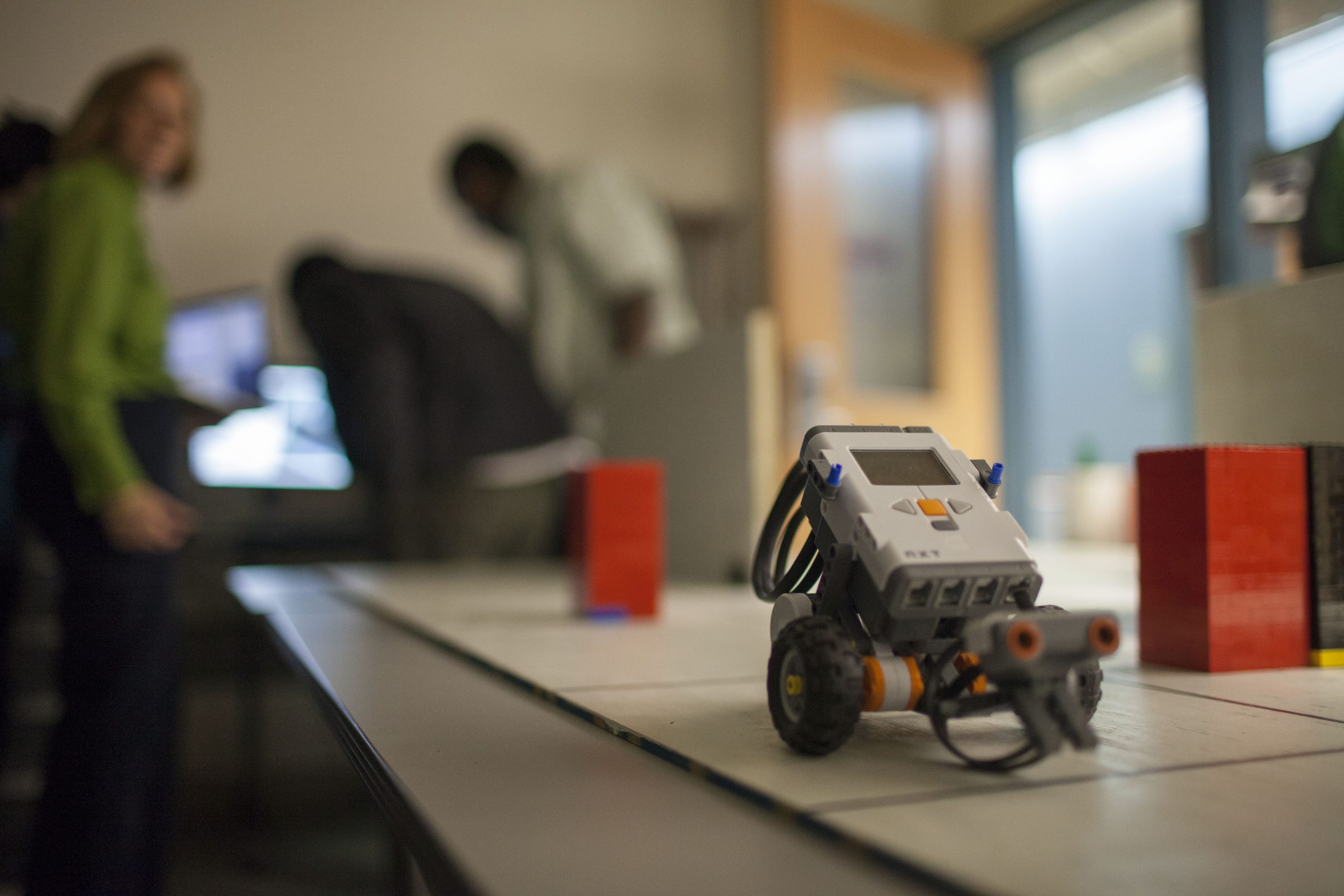Department of Electrical and Computer Engineering (original) (raw)
- Mission
The Electrical and Computer Engineering Department- Educates future leaders and innovators in individual and team problem solving skills through immersive technical experiences in focus areas of excellence.
- Drives innovation across areas of focus as recognized by national priorities and impacts on international science.
- Empowers scholars and graduates to appreciate social implications of technologies and consider ethical responsibilities
- Leads collaborative ground-breaking research to define the future of computing devices and systems.
- Vision
The Electrical and Computer Engineering Department- Will integrate focused areas of excellence throughout our undergraduate, graduate and professional programs
- Will grow leadership that reflects our student profile
- Will increase national impact and reflective rankings
- Will be defined by both its inclusive and innovative natures so that students, staff, and faculty will not only want to work here but will enjoy it.

Our undergraduate and graduate curricula are constantly refined to meet real-world demands and rapid changes in technology. We are committed to our core values of education, research, and inclusive excellence.
Benoit Dawant, Ph.D.
Interim Chair
Department of Electrical and Computer Engineering
Vanderbilt University School of Engineering
Research
 A shared passion for research and education is a hallmark of the Vanderbilt environment, and our undergraduate and graduate programs exemplify that drive for excellence. Faculty, research engineers and students engage in leading scholarship and significant research in both industry and government.
A shared passion for research and education is a hallmark of the Vanderbilt environment, and our undergraduate and graduate programs exemplify that drive for excellence. Faculty, research engineers and students engage in leading scholarship and significant research in both industry and government.
Degree Programs
Graduate Programs
Electrical and computer engineering graduate students pursuing M.S. and Ph.D. degrees work with our accomplished faculty on high-impact research projects while gaining experience in specialized areas of interest. Focus areas include carbon, diamond and silicon nanotechnology, hybrid and embedded systems, medical image processing, photonics, radiation effects and reliability and robotics.
Undergraduate Programs
We offer an accredited electrical and computer engineering undergraduate major, a double-major in electrical and computer engineering and biomedical engineering, and a minor in electrical and computer engineering.
Program Features
The immersive Senior Design Project brings together interdisciplinary teams of engineers to solve cutting-edge problems. Prior teams have gone on to start companies, lead to new industry products, and kickstart research careers. Summer research opportunities are also available in collaboration with the School of Engineering and the VUSE Undergraduate Summer Research Program. Additional opportunities are available in the NSF Research Experience for Undergraduates (REU) programs.
- ECE Major
The curriculum of the Electrical and Computer Engineering major is multifaceted. It provides a broad foundation in mathematics, physics, and computer science and a traditional background in circuit analysis, digital systems, and electronics. Several exciting areas of concentration are available, including photonics, nanomaterials, microelectronics, embedded systems, cyber-physical systems, signal processing, and medical imaging. The ECE major can be combined with several other programs as a double major, including biomedical engineering, physics, and mathematics. Students receive an education that prepares them for diverse careers in industry, government, law, medicine, and postgraduate education. - ECE/BME Double Major
The double major between Electrical and Computer Engineering and Biomedical Engineering is a strategic combination of the broad foundations of Biomedical Engineering with the in-depth preparation of Electrical and Computer Engineering. It is an ideal background for those interested in pursuing careers in instrumentation or the blending of computer technology with biomedical applications (e.g., medical informatics, imaging), as well as careers in research that are directed at the solution of biomedically-oriented problems or health care delivery. The similarity of the two curricula is leveraged so that the double major may be achieved with only six additional course hours beyond the standard load, at the cost of some flexibility in the selection of elective courses.
While some anticipation of the additional course load is advised by taking extra classes in the freshman year, it is often not necessary for those with AP credit. In general the ECE/BME double major can be adopted as late as the sophomore year. - ECE Minor
Minoring in Electrical and Computer Engineering (ECE) equips students with essential cross-disciplinary knowledge in circuits, digital systems, and programming. It also offers a diverse selection of ECE electives in areas such as photonics, nanomaterials, microelectronics, embedded systems, cyber-physical systems, medical imaging, and signal processing. In today's technology-driven world, where computers and electronics are integral to everything from spacecraft to home appliances, an ECE minor enhances coursework across the entire School of Engineering. It provides students with the tools to apply their disciplines more effectively to real-world challenges in manufacturing, economics, transportation, construction, aerospace, energy production, and environmental safety.
Learn more